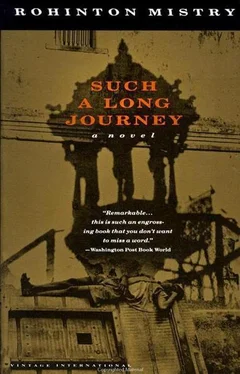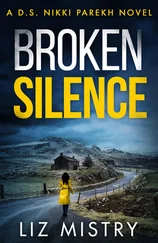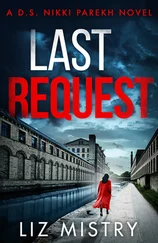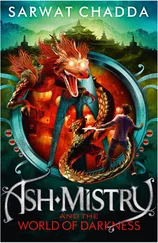‘Yes, please.’ Gustad broke a slice into the soup. He sank the floating pieces, then fished them out one by one.
The covered dish held a mutton cutlet and a small helping of boiled vegetables. ‘ Bas, I am full,’ said Dinshawji.
‘No, no, you must eat.’ Gustad divided the cutlet into manageable mouthfuls, forked a piece and held it to his mouth. ‘Come on, come on. Open up. It’s very tasty.’
‘Please, yaar, the soup filled my stomach and my chest.’
‘Be a good boy, now, Dinshu.’
‘OK, on one condition — we eat half-half.’ Gustad agreed. Midway through the meal he tried to pass on an extra piece. ‘Cheating, cheating,’ said Dinshawji. ‘Your turn.’ After they had emptied the plate in this way, he drank a little water through the spout of his feeding cup. He watched Gustad put the tray aside for the ward boy and wind down the bed slightly. ‘Sorry for all this, Gustad.’
‘Rubbish. I got to enjoy your tasty cutlet,’ said Gustad. Unless he kept up the façde, he knew he would descend into gloom and sadness, which would not be good for Dinshawji.
Later, as he was leaving, Dinshawji thanked him again. His voice was almost tearful. ‘Don’t know what I would do without your visits.’
‘Forget it, yaar. It’s nothing. Actually, helps to pass my time also.’ He straightened the pillow. ‘ Chaalo, goodnight. And don’t do any ghaylaa-chayraa with the night nurse.’
‘Have you seen her? Real futaakro. My Lady with the Lamp. She can borrow my candle any time her lamp is out of order.’
Gustad walked down the cold, clattering corridor, wondering how Dinshawji managed when he did not come. Did the ward boy or nurse feed him, or was he left to spatter and spill? And where was the domestic vulture? He had wanted to ask, but it would have embarrassed Dinshawji.
So all through the rest of October and the first half of November, he visited regularly. On Sundays, he spent the entire afternoon and evening with Dinshawji. Towards the middle of November, his condition worsened, and he was fed intravenously. Now Gustad could only sit, helpless, and watch as the bottles, hanging cold and spiritless from the rack, poured their indifferent fluids into his friend. He suddenly realized how much he had come to look forward to feeding Dinshawji. Now the transparent tubes and shiny needles had taken over.
But he did not falter in his visits, especially the Sunday afternoon ones, which, for some reason, meant more to Dinshawji than all the weekday ones. Sundays had become extremely busy days for Gustad. Dr. Paymaster’s new strict diet for Roshan forced him to resume his hated Sunday morning Crawford Market routine. She had to be fed a variety of boiled foods, not even a hint of spice. Also, coconut water every morning, chicken soup for lunch and dinner, the juice of three sweet lemons in the afternoon, and a drink of Bovril as and when desired in between.
The money from the sale of Gustad’s camera was swallowed by the medicine bills. And the special diet was proving very expensive, especially the Bovril, which could be bought only on the black-market. He wondered whether to sell his watch or his gold wedding cuff-links next. But while he was at work one day, Dilnavaz got Mrs. Pastakia to keep an eye on Roshan, and went to Jhaveri Bazaar. She checked at three different shops and accepted the best offer for her two gold wedding bangles.
She gave the money to Gustad, and it was too late for his objections. She added, ‘For God’s sake, don’t bring home the chicken alive again.’
If it had not been for his child’s sake, nothing could have induced Gustad to endure the sights and smells of Crawford Market; it still repulsed him as much as ever. Every Saturday night he went to bed with a trace of nausea that grew stronger towards dawn. But one morning, when he entered the great crowded hall and made his way towards the back where the chickens were, he was pleasantly surprised. The sharp, importunate smells of provisions and spice shops came first, then the fruit stalls, where a huge pile of discarded pineapples and oranges, on the verge of putrefaction, emitted a sickly sweet odour. In the open space near the egg shops, next to the poultry, a tall, lean man was approaching. He looked so familiar that Gustad stared, trying to place him. When their eyes met, the tall man had the same look of partial recognition on his face.
‘Oh my gosh!’ said the tall man. ‘It’s Gustad Noble, isn’t it?’
‘Malcolm! After how many years!’
‘I don’t believe it!’
‘Where have—!’
They put down their shopping baskets and shook hands, all four of them, and laughed and hugged, and slapped each other’s backs. Then Malcolm placed his left hand on Gustad’s shoulder to squeeze it — he still had that habit — and shook hands all over again. Overcome by the chance meeting, it was a while before they could talk sensibly and exchange news, catch up in some meagre way on their decades of separation. Malcolm was still single, and had fulfilled his early ambition of earning his living by music. ‘But who can afford pianos and lessons these days? With the refugee tax and all? Remember, supply and demand — too many teachers around.’ Now he had barely enough pupils to keep him in sheet music and scores, and to pay the piano-tuner to come regularly. ‘Records also getting difficult to buy. Bloody smugglers charge more and more. Even at Stanley & Sons, the selection is hopeless now, and prices so high.’ In the end, he had had to take a job at the municipality, he confessed.
‘What a shame,’ said Gustad. ‘You have such a gift.’
‘Only ones who make money in music are those monkeys who play for recording studios. Rubbish like jingles or Hindi movie soundtracks. But I cannot sell my soul that way. Bloody ting-ting-ting-ting all day on the piano? After my years of classical training? Forget it.’
Finally, the conversation came to the present. ‘So that’s great,’ said Malcolm. ‘You still come here for your beef.’
‘No, not really. We buy from the goaswalla. More convenient, comes to the building every day.’ He did not reveal his main reason for abandoning Crawford Market; it would sound silly, his fear of riots and bloodshed.
But cliché or no cliché, thought Gustad, better to be safe than sorry where fanatics were concerned. Like all riots, it had started with a peaceful rally. A vast congregation of sadhus wielding staffs, tridents, and various other equally sanctified religious instruments, staged a demonstration outside Parliament House to protest against cow slaughter. Familiar with modern trends in political campaigning and public relations, they also brought along a herd of cows. Slogans were raised, banners unfurled, curses showered on government personnel; drums, bells, horns, cymbals added to the clamour; and the gentle creatures in their midst began lowing nervously. The wrath of the gods was invoked upon the murderers of sacred Gomata, and suddenly, quite inexplicably (some claimed it was the Hand of Providence), the gathering turned violent. The police opened fire. Cows and sadhus stampeded. Staffs and tridents, hooves and horns, bullets and truncheons, all took their toll. And there was also a political death: the Home Minister who sympathized with the sadhus and encouraged their demands had to hand in his resignation. Then the Registered Trade Union of Sadhus and Holy Men sanctioned country-wide agitation, and it was a long time before cow-slaughterers and beef-eaters could breathe freely again. Gustad stayed clear of Crawford Market; his beef-buying trips were never resumed.
‘Buying from goaswalla? ’ said Malcolm. ‘Chut-chut, man, it’s just not the same thing. That goaswalla will never get you the neckie part. But then what brings you here today?’
Читать дальше












